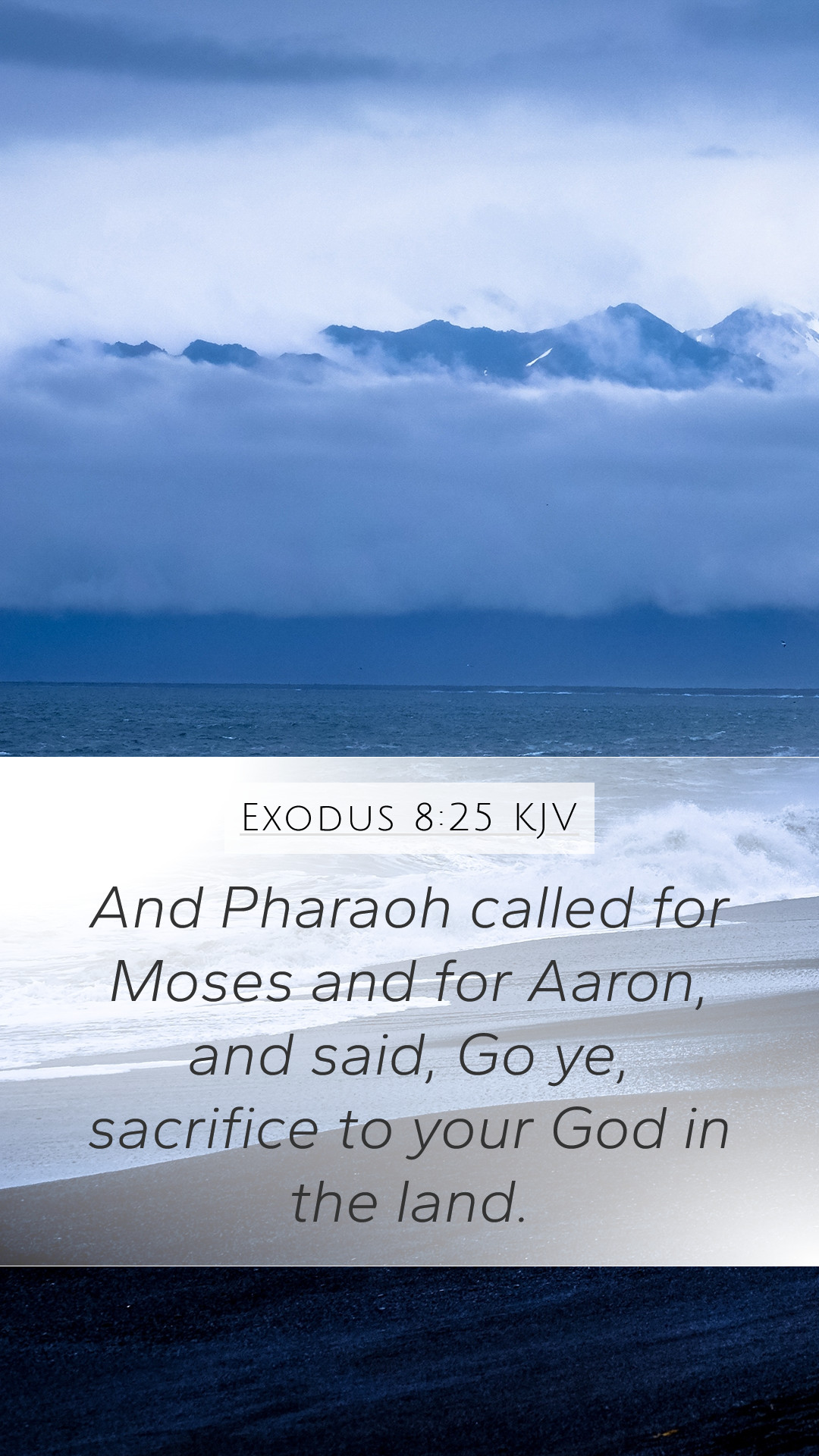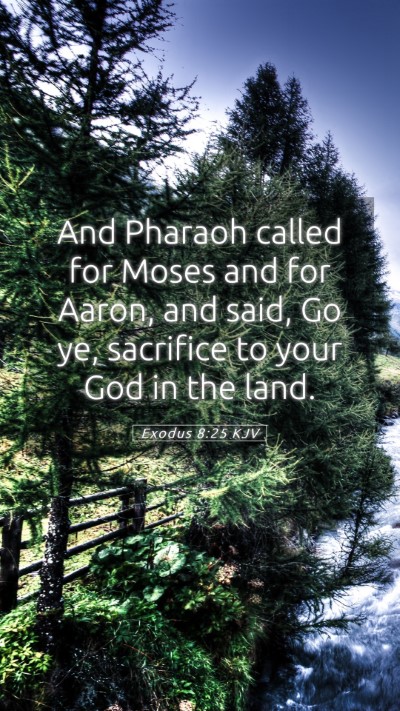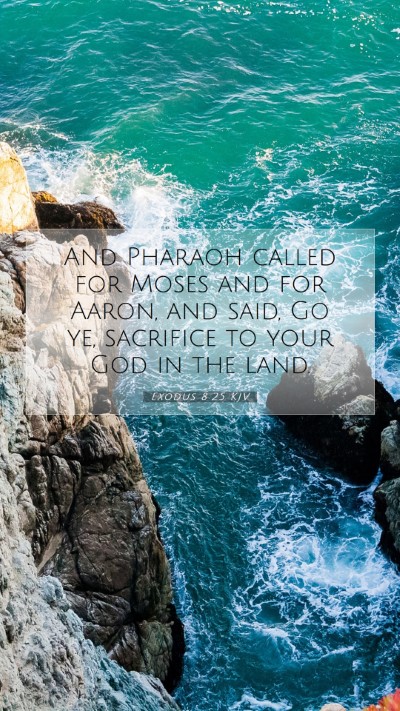Understanding Exodus 8:25
Exodus 8:25 reads: "Then Pharaoh called for Moses and Aaron, and said, 'Entreat the Lord that He may take away the frogs from me and from my people; and I will let the people go, that they may sacrifice to the Lord.'" This verse is a crucial moment in the narrative of Moses' confrontation with Pharaoh during the plagues in Egypt.
Bible Verse Meanings
The verse captures Pharaoh's desperation as frogs plague the land of Egypt, leading him to call upon Moses and Aaron for help. This action illustrates the tension between Pharaoh's hardened heart and the suffering of his people.
Bible Verse Interpretations
- Moses and Aaron's Role: Pharaoh directly addresses Moses and Aaron, recognizing their connection to God. This is significant as it highlights the power of God manifested through His servants.
- Pharaoh’s Compromise: By promising to let the Israelites go in exchange for relief from the frogs, Pharaoh demonstrates a willingness to negotiate while still resisting a complete surrender to God’s will.
Bible Verse Understanding
This encounter emphasizes the theme of divine authority versus human obstinacy. Pharaoh’s request reveals his acknowledgment of God's power, albeit temporary, showing the tumultuous relationship between God and rulers of the earth.
Bible Verse Explanations
Matthew Henry's Commentary: Henry explains that Pharaoh's call for Moses signifies his desperate state, and although he seeks relief, his intentions are not fully aligned with truth and repentance. Instead, he seeks a superficial fix to a deep-rooted problem.
Albert Barnes' Notes: Barnes notes that Pharaoh's plea is an example of how people often seek God's intervention only in moments of anguish, without genuine change in heart or character.
Adam Clarke's Commentary: Clarke emphasizes the irony that Pharaoh, in his position, recognizes the power of God but is not willing to submit fully, foreshadowing future struggles for the Israelites in their journey to freedom.
Historical Context
This verse is situated in a broader narrative that includes the plagues God sent upon Egypt as judgments against the Egyptian gods and Pharaoh's claim to divinity. Understanding this historical backdrop enriches the interpretation of the text.
Application of Bible Verse
For modern readers, this passage is a reminder of the sometimes shallow nature of human repentance when faced with trouble. It challenges believers to seek genuine transformation rather than merely seeking relief from trials.
Cross References
- Exodus 7:16: Moses' initial command to Pharaoh to let the Israelites go.
- Exodus 8:1: The prophecy of the plagues and God's directive to Moses.
- Exodus 9:1: God's continued demand for Pharaoh to release His people.
- Exodus 10:3: Pharaoh's arrogance and further dialogues with Moses.
Conclusion
Exodus 8:25 serves as a pivotal verse that encapsulates the struggle between divine authority and human pride. Through this passage, readers gain insights into not just the character of Pharaoh but also the nature of God's interaction with humanity. It encourages a deeper understanding of the tensions in Scripture and offers a lens for reflecting on personal responses to divine callings and challenges.
Further Study
For those looking to delve deeper into the interpretation of biblical texts, engaging with Bible study groups, using online Bible study resources, and exploring various Bible study tools is advisable. Understanding such verses enriches one's spiritual life and enhances the community's biblical literacy.


